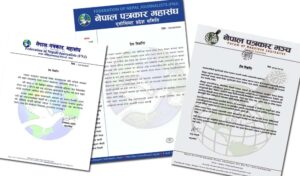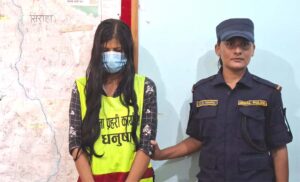Kathmandu. Kabir Khan is one of the most successful directors of the latest generation in Bollywood. He started directing with ‘Kabul Express’ and since then he has directed films like ‘New York’, ‘Ek Tha Tiger’, Bajrangi Bhaijaan’, ’83’, ‘Chandu Champion’.
He was in Kathmandu this week. He came to Kathmandu as the chief guest of South Asia Film Festival. Kabir won the ‘Grand Jury Award’ for his docu-drama ‘The Forgotten Army’ in the 1999 edition 25 years ago.
Addressing the opening session of Film South Asia, Kabir recalled that the award was the first award he received for his work. He said that the award helped him to move forward in film production.
Kabir, who has succeeded in making his own name and hold in the mainstream cinema of Bollywood today, was interviewed during the festival. In the dialogue, he said that the movie will be shot on the day when the story finds Nepal, and also suggested that those who want to find a future in the film industry should study a lot and watch movies. He is of the opinion that the director should stick to the story he wants to tell and write the screenplay according to the demand of the story. He said that for this, the person should have the ability to identify those things along with the study.
Here is an edited excerpt of a conversation with Bollywood director Kabir Khan by the National News Committee (NRS):
When did you think of becoming a filmmaker?
This is how it started as a gradual process. I was interested in still photography. I used to go hiking a lot. Due to this, I used to capture the places where I used to visit. This is what led me to this sight-seeing trip. I also did theater to some extent in school and college. Unknowingly, he became closer to the cinema. My mother was a great movie buff. He took us to see many movies. I had a kind of love for cinema, but I had no idea that I would be there professionally. I started here only after completing my graduation.
My sister was applying to a film school, and I asked her to bring an admission form for me as well. I applied without thinking and got admission in Jamia Film School. When I started this, I realized this. When I got into film school, I started thinking that this is what I would love.
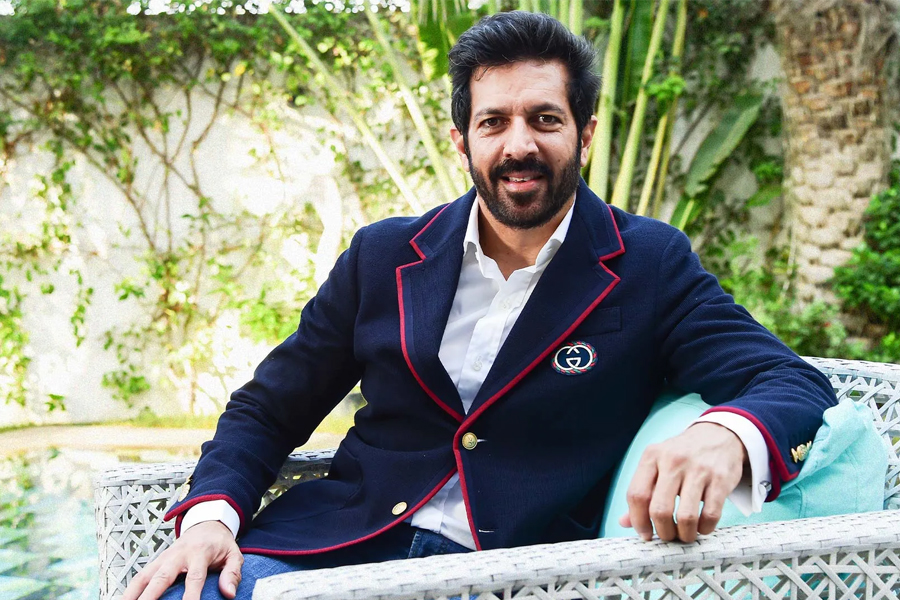
Before entering Jamia, what kind of movies did you start leaning towards?
I watched all kinds of movies. We used to watch all kinds of movies at home. My mother’s favorite actor was Amitabh Bachchan, she was also a fan of Shyam Benegal’s movies. So we used to watch many kinds of movies.
Once you understand that cinema is a serious business, you should watch moviesOThere is no change in thethis that?
By the time I realized this, I had come to film school and my acquaintance with cinema had begun to expand. We had started watching all kinds of movies from all over the world. Now, if you ask me exactly which movies I watched, I can’t say Yo-Yo Khale, but if you ask me who I followed in the Indian film industry, that person is Mani Ratnam. Mani Ratnam’s movies always have human stories, in the background of which there are big political scenarios. I was attracted to these things and wanted to do such films when I got the chance. I wanted to tell a humane story connected with political and historical context in mainstream cinema.
For those who are into documentary cinema, the urge to make mainstream movieshro can’t be seduced, How did you get this fascination?
I was always clear about doing mainstream cinema. There was very little audience for documentary cinema in those days. I was finding it difficult to reach that audience. There were no digital platforms like today including OTT. Along with this, I understood that mainstream cinema is powerful in this country and that’s why I came here.
How difficult-easy was it to ‘pitch’ the first movie?
It was not easy. When I look back on my journey, it wasn’t that bad. For a year, if any producer would invest, I was walking around with a script. At that time it seemed to me like a very difficult and long journey. My first movie ‘Kabul Express’ was different for that time. There were no love stories or love songs in it, it was completely different. But in the end, surprisingly, the big name of the Bollywood film industry ‘Yashraj Films’ took my script and signed me for three films.
‘How was your understanding and experience as a director after ‘Kabul Express’?
It was like a dream come true. Bringing that movie to the big screen was like a bonus. I was lucky enough to get a producer like Aditya Chopra. He gave me the opportunity to make three different types of cinema. I made three films for Yasraj namely ‘Kabul Express’, ‘New York’ and ‘Ek Tha Tiger’ and I was different from each other in all three films. That’s why it became like a huge training ground for cinema production.
Why do you think Aditya chose your movie ‘Kabul Express’? What was his reaction to this movie?
Not only after ‘Kabul Express’, but also before making it, there were many discussions. Those discussions were about the cinema’s thinking style and script. He thought of ‘Kabul Express’ as a cinema of new time and thinking. It was different from the movies they were making. He wanted to change that. He considered it as a cinema beyond his comfort.
How do you find stories for movies?
A story can come from anyone. It can also come from your personal experience, as it happened to me in ‘Kabul Express’. There may also be news that you read in the newspaper, like ‘Chandu Champion’. It came from an article I read in a newspaper and it could be from historical context or from what someone told you, which made ‘Bajrangi Bhaijaan’. It was sent to me by Vijayantara Prasad from Hyderabad, which I liked as soon as I read it. So the story can be found in any way. Then it will be converted into a script.
How do you choose the screenplay?
The ‘gut feeling instinct’ within you will make the choice. It has to create attraction in you personally. When I hear a story, it has to make me excited that I want to tell this story. I analyze why I like it and take it into the writing process but my first base is ‘gut feeling instinct’.
As a director, what excites you the most after meeting a story?
Like I said, it’s not just one thing, it’s everything. Like the juggling of the characters, what the story is trying to say, the background of the character that builds it, that is, as a story, it should awaken your senses, it should be exciting. As a filmmaker, after that, you can start movies. This is a long process. When you come to make a movie, then you have to commit to that idea for a year to a year and a half. Only your attachment can work on it.
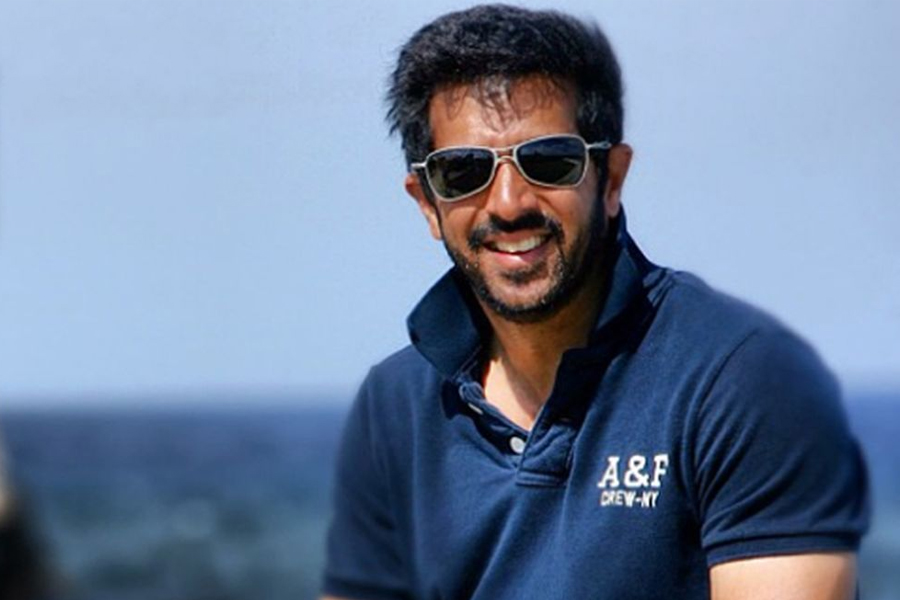
Script is important for cinema, What are your checklists for screenplays as a director?–what are
Screenplay is very important in script. Screenplay is very important in how the story unfolds, how it moves from one scene to another and keeps the audience engaged. You can learn screenplay writing by watching other movies. You can also study books. These things help, but you have to have talent. You should also read the scripts of others who have been praised. It is a continuous learning process. Every movie demands a different screenplay, so you have to feel what you want to say and understand how you want to say it. Because depending on the story, it is sometimes linear and sometimes non-linear.
a filmby personnel Should you watch more movies or read more?
Both should be done. It provides a window into the expressions of people from different worlds. Which you have not experienced or studied. Studying and watching movies both help a lot. It helps to understand different perspectives, to understand what is happening around, to understand how people are thinking in the world, their expressions, crafts. I don’t think there is any other option but to watch more movies and study.
What do you think as a director when a movie succeeds or fails?
I try to analyze why it worked or not. Sometimes it may take time to understand that again. But I think that one should not be too excited when a movie succeeds and not be too serious when it fails. This is the rule of the game.
Success and failure cannot take the vision of your cinema away from you. The story you are trying to tell is also not affected. You should not be affected by both success and failure.
A new film by the directorof personnel Do you have any suggestions?
I think you should be steadfast in your vision and vision. Due to the reputation and buzz in this industry, there is a possibility that it will change direction soon. When this happens, there is a danger of losing oneself in this. Every filmmaker has his own voice and is in danger of losing it. People see your cinema as a signature. So you need to stick to it.
Over the past few years, South Indian cinema has been expanding its influence . How is Bollywood looking at those movies?
This is a welcome change. Rather than us calling it Bollywood, South or Punjab cinema in India, these are Indian cinemas. We are succeeding in bringing the audience to the hall, this is a great achievement. The benefits of which are reaching the entire industry.
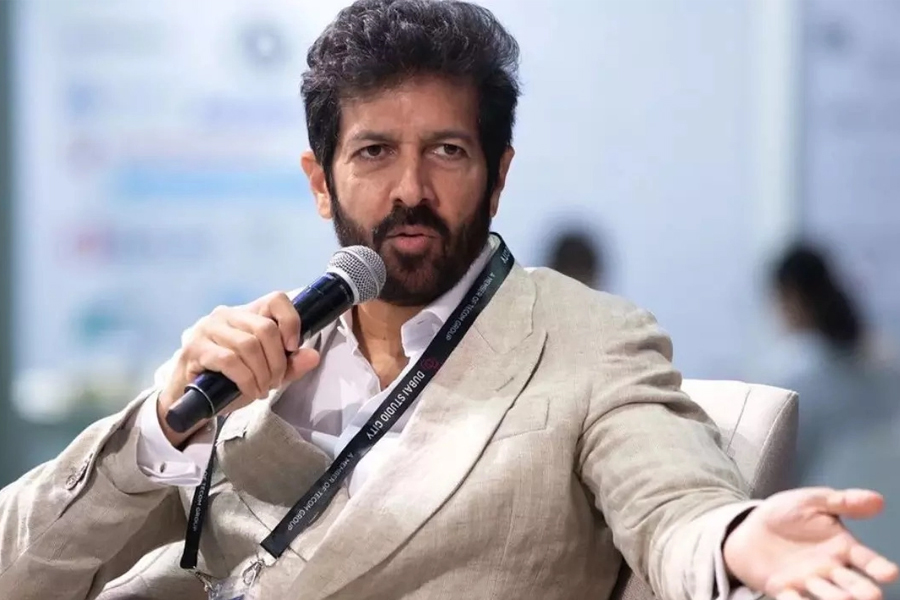
It is said that Bollywood is not achieving commercial success as expected. which they used to get before. What are the reasons for this?
Not even that. For a while after covid we thought that people are still not back to normal. People are not in the habit of coming to the cinema as before. But after a while many Indian Hindi movies have done big business. Pathan, Stree 2, Jawan and other movies have done huge business. People have started coming to the hall now, although they are not coming as much as they used to come before covid. Gradually it will increase.
You are making movies like Bollywood. That moviefrom are you happy
In terms of audience, it may not be making for me, but other viewers are liking it. Personally speaking, I am not satisfied with the post-Covid movies, it is not happening. But movies are being made, people are coming to see them which is a reason to be happy.
A lot of South Indian cinematake it Lately Nepal is being made a shooting destination . When?eAnd when was Khan seen shooting in Nepal?
I have also said it in the dialogue session of the festival. I am looking for a new story and if I find a good story with a Nepali setting I will be excited to shoot in Nepal. Nepal is a fascinating place in terms of shooting and it is a good place not only because of nature but also because of the character of Kathmandu, its people. If there is a right story and the story of Kathmandu, Kathmandu will definitely be my shooting location.
Did you watch any Nepali movies after coming here?
no I have only been here for two days but I have heard a lot of good talk about the current movie, I completely forgot the name (Poorna Bahadur’s Sarangi). Maybe I will watch it at some point, but it is not possible during this trip because I am busy with the festival and I cannot find time for it. It’s great to have such support from the local audience. To be supported in this way is a great thing in itself.
your next Documentary film When can you see?
I don’t know when I will get it. I am busy with feature films, so I don’t know at what point I will make a documentary film, but I like to make documentaries. I am excited by its structure. A story can be told better with the structure of a documentary than drama fiction.
Favorite movies of your own whetherI which one
Did you say from my movie? It is very difficult to say because it is like asking someone who is your favorite child. That’s why I can’t give any name as my favorite movie. But sometimes the process of making a movie keeps it at the side of the mind. The process and journey of making that movie is a director who is working with a goal when taking that story for a movie and how he skillfully turned it into a movie means that he has achieved an achievement. Like ’83’ and ‘Chandu Champion’, I was able to bring both these movies to the screen the way I wanted to bring them. So these two movies are very close to me.





